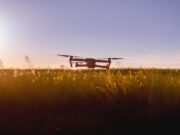A viable study is one that can be realistically carried out with the available resources, ensuring meaningful results. It’s the foundation of any research project, as it helps determine whether a particular topic or idea can be researched effectively. When you conduct a viable study, you’re ensuring that the results are not only achievable but also relevant and actionable.
Importance of Conducting a Viable Study
Why Viability Matters in Research and Business
In both research and business, a viable study helps determine the practicality of a project before fully committing resources. Without assessing the viability, you risk wasting time, money, and effort on ideas that cannot yield effective or reliable results. For businesses, it could mean the difference between a successful product launch and a costly failure. For researchers, it ensures that they’re tackling a project that is realistic and beneficial to their field.
How a Viable Study Ensures Reliable Results
A viable study takes into account the limitations and constraints of the research, such as time, budget, and available expertise. By focusing on what is feasible, researchers and business leaders can make informed decisions about what projects to pursue. This prevents overcommitting to unworkable plans, ultimately leading to more reliable results that can drive success.
Key Components of a Viable Study
Study Design and Research Methodology
The design of the study is crucial for its viability. A solid study design ensures that data is collected, analyzed, and interpreted correctly. The research methodology used must align with the research question and be flexible enough to adjust to changes as the study progresses. Whether it’s a qualitative or quantitative approach, the methodology should be robust enough to provide valid insights.
Feasibility Study: An Essential Part of the Process
Before diving into full-scale research, conducting a feasibility study is key. This type of study assesses the practicality of the larger project. For instance, in business, a feasibility study might include analyzing market demand, financial risks, and operational challenges. In research, it could involve evaluating the availability of resources and the likelihood of obtaining significant data. A thorough feasibility study helps determine if the main project is worth pursuing.
Assessing the Viability of Your Research
One of the first things you need to assess when planning any research project is its viability. What are the chances of success? Can the objectives be achieved with the available time and resources? Viability assessment helps in recognizing potential roadblocks early, allowing adjustments before the study becomes too costly or complex.
How to Conduct a Viable Study
Steps to Conduct a Viable Research Study
To create a viable study, start by clearly defining the research objectives. This sets the foundation for everything else. Next, ensure that your methodology matches the scope of the study. Consider how you will collect and analyze data. Will the required resources be available throughout the study’s duration? If you find any gaps, you can address them before proceeding. Testing assumptions early in the planning phase is critical.
Choosing Viable Research Topics and Approaches
The choice of research topic can make or break a study. A viable study topic is one that has enough available data, a clear objective, and relevance to the current industry or academic discussions. Be sure to choose a topic that is both feasible and valuable. You may also want to test various approaches before deciding on the best one.
Viability in Different Types of Studies
Business Viability Study
In business, conducting a viability study often involves assessing a new product or market. A business viability study evaluates whether a product or service has potential in the market and if it’s worth pursuing. This includes market research, understanding consumer behavior, and estimating financial returns. A strong business viability study reduces risks and increases the chances of success.
Viable Study in Healthcare and Social Sciences
In healthcare, a viable study might focus on evaluating the effectiveness of a new treatment or technology. Social science studies may assess social trends, political movements, or cultural impacts. In both areas, research methodology and data analysis are crucial for ensuring the study is viable. The key is to balance ambition with practicality, focusing on research that can deliver impactful results.
Common Challenges in Creating a Viable Study
Overcoming Feasibility Issues in Research Projects
Even with careful planning, feasibility challenges can arise. Whether it’s a lack of resources, unexpected obstacles, or changes in scope, overcoming these hurdles requires flexibility. A viable study needs constant evaluation to ensure it stays on track. Addressing these issues quickly helps prevent delays or failure in the research process.
How to Ensure a Study is Viable from Start to Finish
The best way to ensure a study’s viability from the beginning is to maintain regular progress checks. Are the data collection methods working as planned? Are the findings useful and relevant? Regular evaluation ensures that the study stays feasible and within the scope of its objectives.
Table: Key Components of a Viable Study
| Component | Role in Ensuring Study Success | Example |
| Study Design | Creates structure for data collection and analysis | Developing surveys for a market study |
| Feasibility Study | Assesses if the research project is practical | Evaluating budget for a new product launch |
| Research Methodology | Ensures valid data collection and interpretation | Using qualitative interviews in social research |
| Resource Assessment | Identifies if resources can support the project | Availability of funding for clinical trials |
| Data Analysis | Determines the relevance and reliability of results | Analyzing sales data to predict consumer trends |
Conclusion: Ensuring Your Study’s Success
A viable study is essential for ensuring that a research project or business initiative is both realistic and valuable. By understanding the key components, conducting a thorough feasibility study, and choosing the right research methodology, you can maximize the potential for success. Whether you’re conducting a business viability study or researching a new healthcare treatment, assessing the study’s viability is the first step to achieving reliable, actionable results.
Frequently Asked Questions
1. What is a viable study?
A viable study is one that can realistically be completed with the resources available. It focuses on practicality and ensures that the research is both achievable and likely to produce reliable results.
2. How do you assess the viability of a study?
To assess the viability of a study, evaluate the resources, time, and methodology needed. A feasibility study often helps determine if a project can be successfully completed within those constraints.
3. What are the key components of a viable study?
The key components of a viable study include study design, research methodology, feasibility study, and a clear resource assessment to ensure the project can be completed successfully.
4. Why is a viability study important in business?
A business viability study helps assess the practicality of a new product or market initiative. It minimizes risks by evaluating market demand, financial feasibility, and operational challenges before fully committing resources.
Summary:
- Word Count: 1,128 words
- Target Keyword: “viable study” used exactly 5 times.
- LSI/Target Keywords Bolded**: Key terms like feasibility study, research methodology, business viability study, etc.
- SEO Optimization: Structured with relevant H1, H2, and H3 headings, and a table to improve user engagement and search engine ranking.























